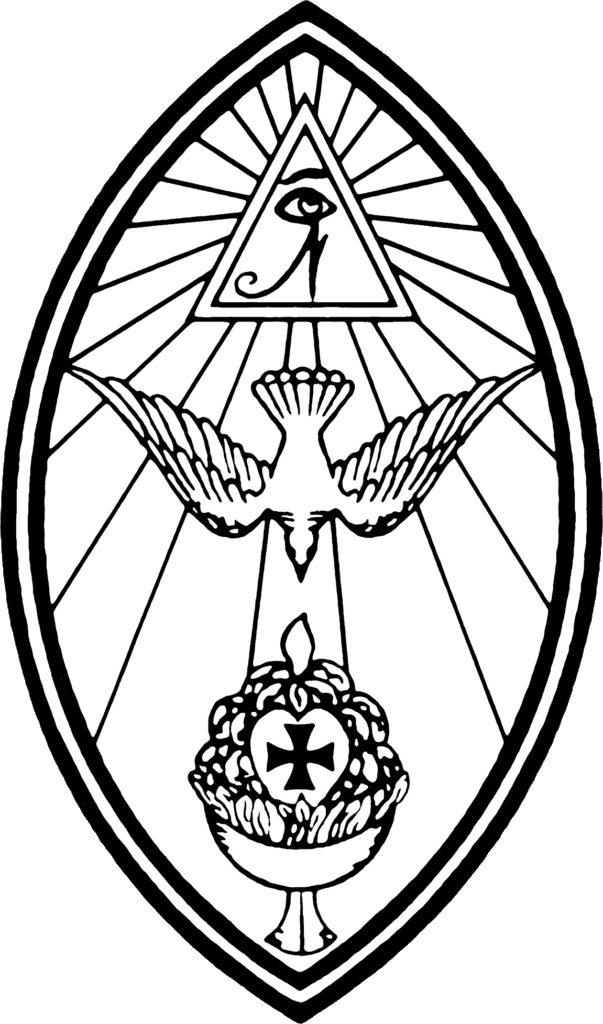NOTOCON II Keynote Address: Fraternity
Address delivered by National Grand Master General Sabazius Xº to the Second National Conference of the U.S. O.T.O. Grand Lodge
Saturday evening, August 6, 1999 e.v.
Brothers and Sisters,
Do what thou wilt shall be the whole of the Law.
The theme originally proposed for this conference was “O.T.O.: the Next 100 Years.” I don’t think it was really intended to indicate that the conference would be all about divination, or that the Secret Chiefs would be invoked and interviewed in detail, but I could be wrong.
I think the shape of our destiny over the next 100 years will be determined primarily by two things:
- How we relate as a group to the public and the various other institutions of our culture, and
- How we relate as individuals to each other and to our organization as a collective.
Our level of success in dealing with the other institutions of our culture will be heavily influenced by how they perceive us. We are not aiming necessarily for their support or their agreement with us; but we cannot deal with them effectively unless we can at least garner their respect.
Will those institutions perceive us as a serious, coherent, resolute, and ethical (though colorful) organization of men and women committed to mutual aid, with sincere beliefs and principles, and an unshakable will to hold together and persevere?
Or will they perceive us as… let’s just say something less favorable to our interests?
How can we shape these perceptions to our advantage? Our corporate –level, high-visibility projects will play a part in this, but actually a rather small part. The more important part will ultimately be the second factor I mentioned before, how we relate as individuals to each other and to our organization as a collective. This is why the present theme of this conference is “Fraternity.” Because fraternity will be one of the most important factors in determining our future, and it is definitely the most important factor of which you, the membership, have direct and absolute control.
So what is fraternity? I think we all know by now that it doesn’t just mean being nice to each other.
Personally, I think of fraternity as a sort of yoga. I think it means developing a consciousness that extends beyond our individual personas, while maintaining a rooted sense of the sovereignty of our individual wills: being fully mindful of one’s own rights, needs, and abilities as an individual, while altogether sacrificing pettiness and selfishness. You hold on to the knowledge that you have your own True Will as an individual human being, but you also know that your True Will and those of your sworn Brothers and Sisters are intertwined, and that the resultant is a unique entity in itself – a child, as it were, of intertwined Wills and destinies.
This child can be expected to behave in much the same way as a real human child. It will need to be nurtured and encouraged if it is to mature into a strong and beautiful being, ready to develop its own relationships with other children.
So this fraternity between individuals can and should unfold into a fraternity between aggregates, as a sort of meta-fraternity. In order for fraternal consciousness to be meaningful in a large group such as our Grand Lodge, the bond that grows and develops between people who meet with each other frequently must be extended to those who are seldom if ever met with, but who nevertheless share the same obligations of mutual aid and support, who have been through the same initiations, who take communion in the same Gnostic Mass, etc. Our local bodies need to develop their own fraternal consciousness with other local bodies, in fact with all other local bodies. Each local body needs to express its own unique character, but it must also strengthen and harmonize those elements that our local bodies all hold in common.
Now, many seem to equate fraternity with friendship, but the two are really quite distinct, though not incompatible. Ideally, fraternity should be more like the vital camaraderie of soldiers on the battlefield than like the casual friendship of co-workers or schoolmates. Unlike friendship, a fraternal relationship can exist between those who do not know each other, or even between those who do not particularly like each other.
However, it cannot exist where there is actual hatred. There are few things more loathsome, and more damaging to our fraternal spirit, than when a brother betrays his obligations, his Order and himself by indulging in attacks against his own sworn brother or sister, attacks of vengeance not excepted. Now, extreme or persistent unfraternal behavior may require that someone be removed from the Order or otherwise disciplined by the appropriate Order authorities, but it does not justify “magical attacks,” or other deeds of vigilantism between sworn brothers and sisters. Such reactivity is always divisive, and it can spiral into cycles of recrimination and retribution that have, in the past, nearly killed the spirit of fraternity in certain areas, as some of you may know all too well. We all need to help see to it that this does not happen again, that suspicion, envy, jealousy and misunderstandings between our brothers and sisters are effectively resolved before paranoia kicks in and turns them into fear and hatred.
But fear and hatred are not the only potential poisons to our fraternal spirit. The fraternal spirit requires sincerity and balance. Selfishness and pettiness are no worse than sentimental credulity or showcase altruism. He who drowns himself is as dead as he who dies of thirst from refusing to drink. The fraternal yoga must be an expansion of consciousness, not adisplacement of consciousness.
Another aspect of fraternity, as the relationship between the individual and the collective, is our attitudes toward the collective effort. How are we, as individuals, contributing to the work of the group? Do we need to be nagged and harrassed, or bribed or enticed, to contribute anything? And how are we, as local bodies, contributing to the progress of the Order in the next 100 years? Do we have a clear vision of our role within our Grand Lodge and the Order as a whole, or are we too preoccupied with our own local problems and issues?
One reflection of the character of the fraternal spirit of a local body is the state of its physical temple, which is a direct and conspicuous product of the group’s collective effort. Many local bodies now have quite impressive, free-standing temple facilities, the kind of facilities that would draw a breath of wonder from any newly-introduced candidate. And yet, we still have initiations being performed on overturned wastebaskets, and battered old plant stands. In some locations, “battlefield conditions” have persisted years after cessation of hostilities. If we can pull together to create events like this, then surely we can, over time, step by step, create the temples of our dreams.
If your initiator has been using the same bent candle holder for the last ten years, then why don’t you buy her a new one? You probably won’t have to sell your car to do it. If the temple needs painting, then why don’t you offer to do it? Can you drag yourself away from your computer for an afternoon? Perhaps some of your brothers and sisters will be sufficiently possessed by the fraternal spirit to agree to help you.
But why, I hear some asking, should the conscientious few have to shoulder the burden for everybody, when “the rest’ don’t seem to see the need? When they seem content to spend their time and energy on other pleasurable indulgences?
Well, “the rest” don’t really matter, because fraternity begins with you — you have direct and absolute control over your own attitude, and it is your attitude that will ultimately determine the character of our fraternal spirit, and thus the shape of our Order’s destiny, over the next 100 years.
And from what I’ve seen and heard so far this weekend, I’m pretty optimistic.
Love is the law, love under will.

